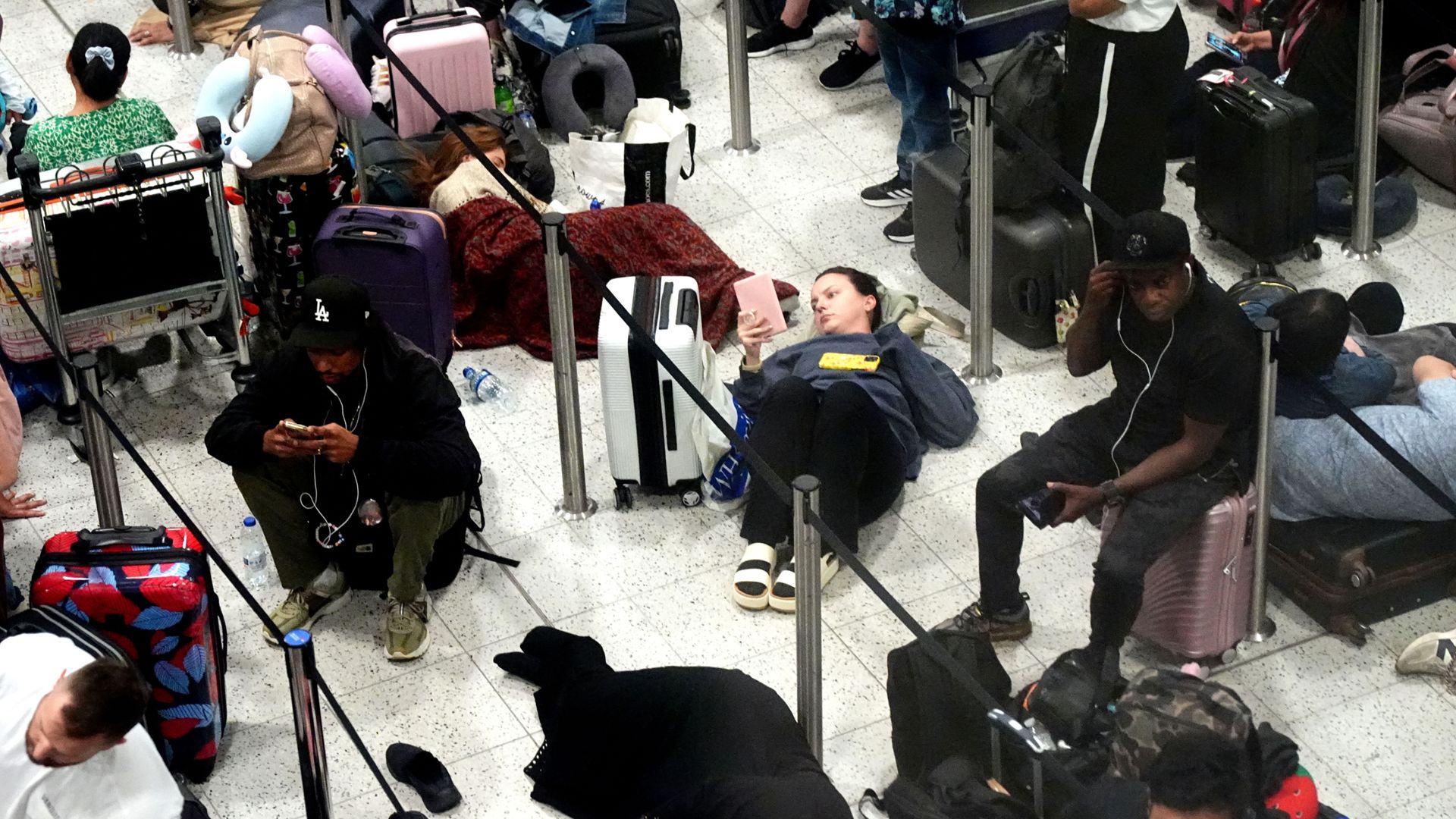It’s possible we are looking at the largest IT outage in history.
More than 70% of the world’s desktop computers run on Microsoft Windows software.
A software update from one of Microsoft’s clients – cybersecurity company CrowdStrike – has now taken a large number of those machines offline.
The faulty code – just a few lines long – has led to global disruption with an economic impact that is as yet incalculable – but likely to be huge.
Follow live: Major services across the world affected by outage
The “Falcon Sensor” product designed to protect Windows from malicious attacks is used widely on Mac and Linux systems as well as within more bespoke software for things like cash machines.
Please use Chrome browser for a more accessible video player
Thankfully, the update that caused the Microsoft meltdown did not affect these other software families – if it had, the impacts could have been catastrophic.
Global IT outages latest: Security firm CrowdStrike rules out cyber attack as world copes with tech ‘disaster’
Global IT outage hits companies around the world as planes grounded and train services affected
Global IT outage: Air and rail travel chaos continues – as passengers describe ‘bedlam’ conditions
Serious questions
There are serious questions of course for CrowdStrike.
But also Microsoft: What due diligence do they perform on third party providers and on individual updates before they’re released across their globally dominant system?
There are questions too for anyone whose livelihood depends on IT products made by an increasingly powerful oligopoly of tech companies.
Read more:
Mass IT outage affects worldwide travel
What’s been impacted by the outage?
Please use Chrome browser for a more accessible video player
Any engineer will tell you over-reliance on one system leaves you open to a “single point of failure”. Critical digital infrastructure has to have redundancy – back up systems – built in to ensure it is resilient.
Thankfully, it seems IT in emergency services, hospitals, air traffic control, water and power utilities and government departments have come through largely unscathed.
That is reassuring.
But for everyone else, the global disruption caused by a bit of routine IT maintenance raises profound questions about the reliability of the software on which the world runs.








